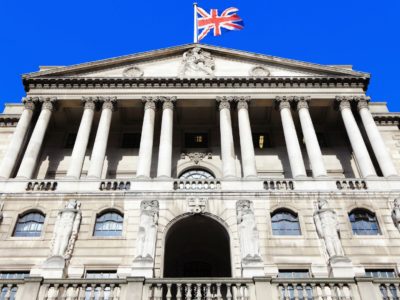The Bank of England is stressing that the overall banking system is safe as houses, but hairline cracks in other areas still risk widening into deeper financial problems, so it’s surveying remedial work that may be needed.
The speed at which nervousness spread across the highly interconnected banking sector after Silicon Valley Bank’s problems emerged is clearly a big cause for concern, with the ease of digital transactions intensifying likelihoods of runs on deposits.
We’ve been going through one of the most aggressive rate hiking cycles in decades, so it’s little surprise the Bank is highly attuned to further problems which could emerge on the horizon.
When money is easy to access and can be done so at such a fast pace, it has shone the light on potential vulnerabilities in other parts of more murky financial plumbing.
Money market funds, often used by businesses and local authorities, which invest in perceived lower risk short-term assets like short dated government bonds, are a potential cause for concern for the Bank of England.
It’s because money can be pulled out quickly and so these funds could be vulnerable to large immediate withdrawals if any whispers of concerns are amplified.
Plans are now underway to make changes to limit this eventuality by ensuring they hold significantly more liquid assets.
The double whammy effect for the commercial property sector is a looming risk. Real estate values have been knocked as rates have been ramped up, and as firms try and refinance loans at much higher prices, more risk being unable to service their debts.
The risks higher rates posed to the pensions industry had already hit home hard in September as spikes in gilt yields, caused by a projected ballooning in UK debt saw government bond prices fall steeply, putting schemes which had invested in liability driven investment funds in a precarious position.
The Bank clearly does not want to see a repeat of this chaos, which led to it having to step in and purchase debt, to stop a doom-loop of collateral calls.
It’s demanding these LDI funds up their resilience to shocks in the gilt markets of up to 250 basis points.
The Bank of England is uneasy at the expectation that the buck will always stop at Threadneedle Street and that as an institution it will be able to step in and try and save the day.
Given the shocks that have rocked the banking sector over the past few weeks, it’s clear the institution is on high alert, and wants to reduce risks fast to stop potential contagion elsewhere.
It now plans to ‘war-game’ potential stresses, by involving institutions involved in market-based finance which is a sensible move to ensure greater readiness if further knock-on shocks to the system emerge.























Comments